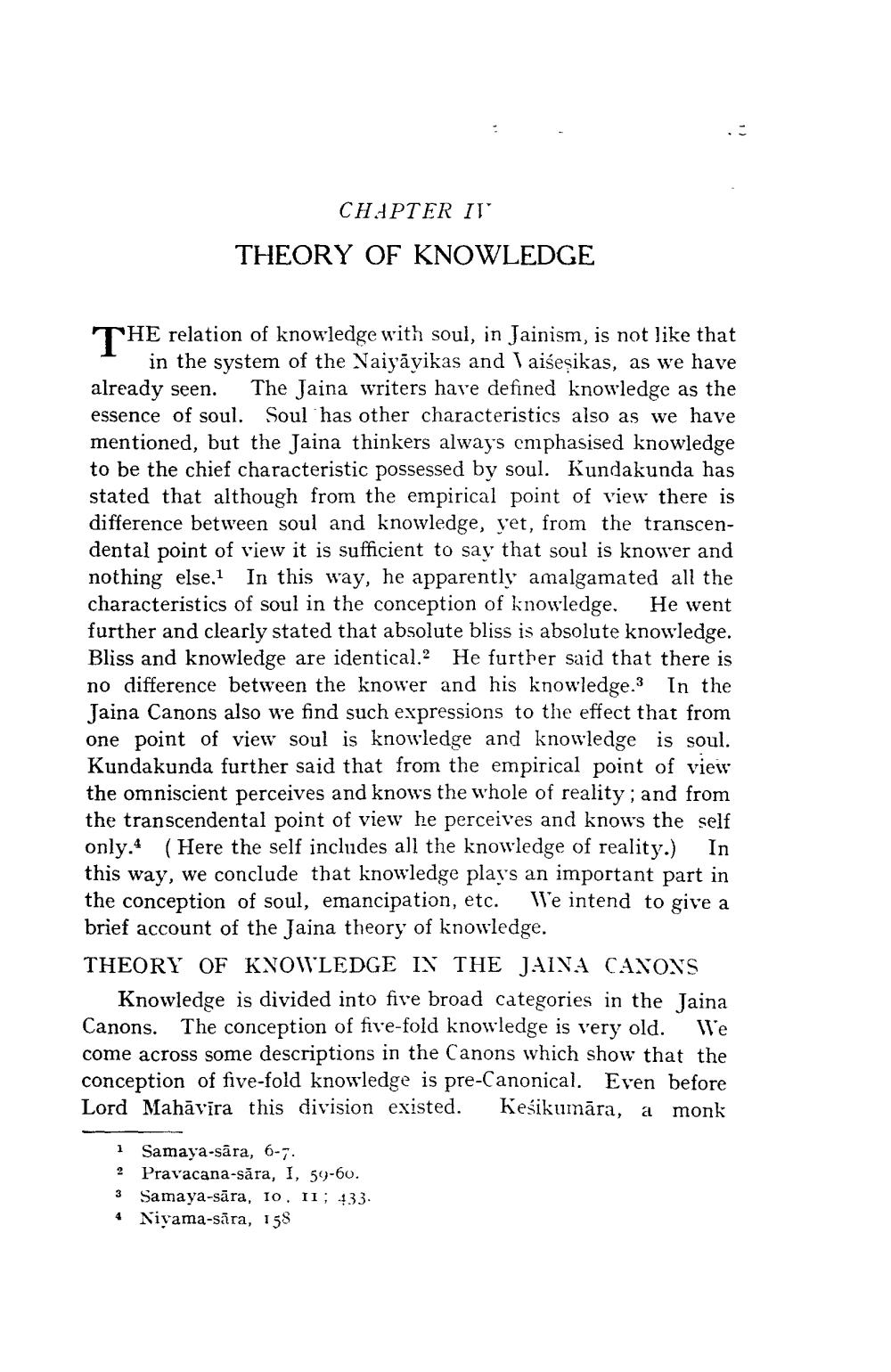________________
CHAPTER IV
THEORY OF KNOWLEDGE
THE HE relation of knowledge with soul, in Jainism, is not like that in the system of the Naiyayikas and Vaiseṣikas, as we have already seen. The Jaina writers have defined knowledge as the essence of soul. Soul has other characteristics also as we have mentioned, but the Jaina thinkers always emphasised knowledge to be the chief characteristic possessed by soul. Kundakunda has stated that although from the empirical point of view there is difference between soul and knowledge, yet, from the transcendental point of view it is sufficient to say that soul is knower and nothing else.1 In this way, he apparently amalgamated all the characteristics of soul in the conception of knowledge. He went further and clearly stated that absolute bliss is absolute knowledge. Bliss and knowledge are identical. He further said that there is no difference between the knower and his knowledge. In the Jaina Canons also we find such expressions to the effect that from one point of view soul is knowledge and knowledge is soul. Kundakunda further said that from the empirical point of view the omniscient perceives and knows the whole of reality; and from the transcendental point of view he perceives and knows the self only. (Here the self includes all the knowledge of reality.) In this way, we conclude that knowledge plays an important part in the conception of soul, emancipation, etc. We intend to give a brief account of the Jaina theory of knowledge.
THEORY OF KNOWLEDGE IN THE JAINA CANONS
Knowledge is divided into five broad categories in the Jaina Canons. The conception of five-fold knowledge is very old. We come across some descriptions in the Canons which show that the conception of five-fold knowledge is pre-Canonical. Even before Lord Mahāvīra this division existed. Kesikumāra, a monk
1 Samaya-sara, 6-7.
2
Pravacana-sara, I, 59-60.
3 Samaya-sāra, 10. 11; 433.
4 Niyama-sara, 158




